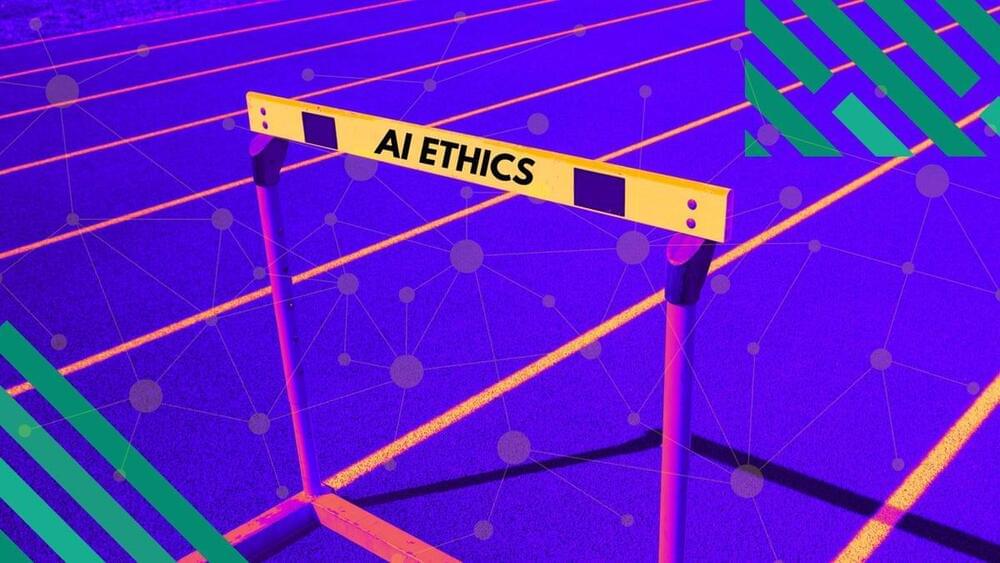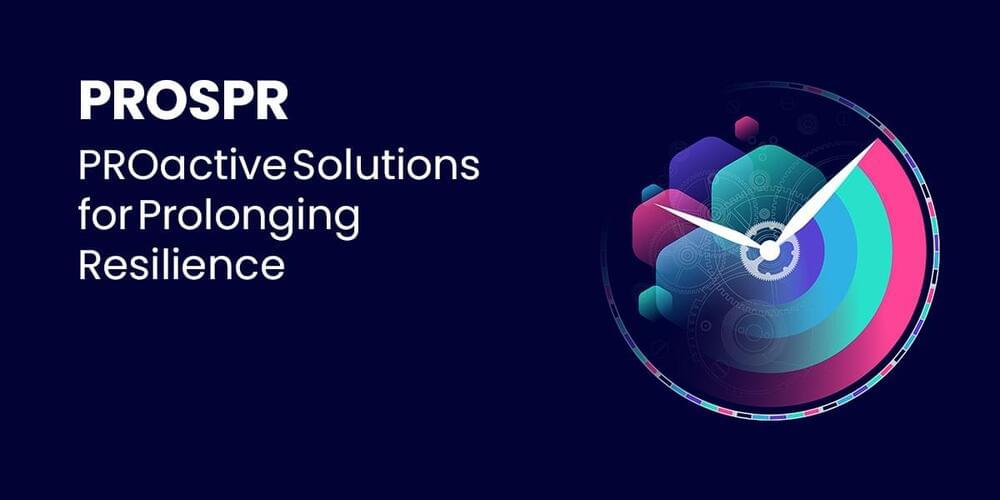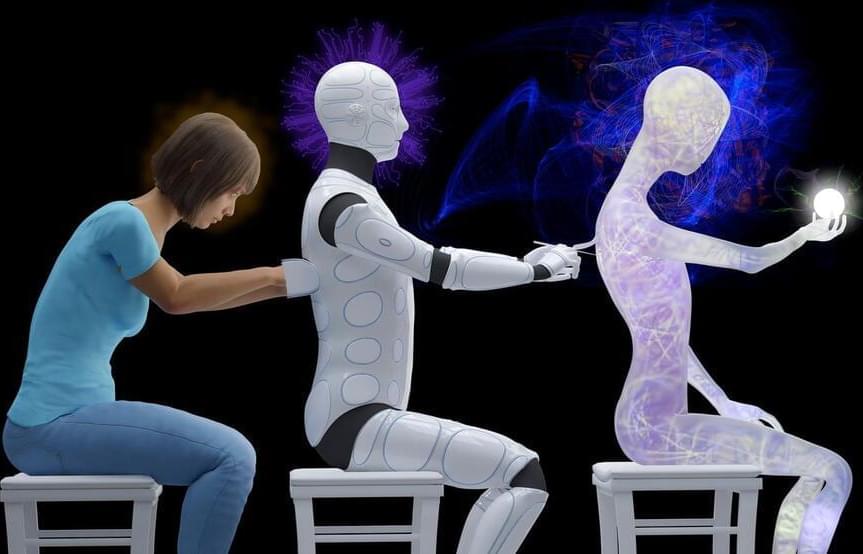Explore Sam Altman’s predictions on Artificial Super Intelligence (ASI), its risks, and its potential to reshape industries, economies and.
Category: economics – Page 32

Coming AI-driven economy will sell your decisions before you take them, researchers warn
This is according to AI ethicists from the University of Cambridge, who say we are at the dawn of a “lucrative yet troubling new marketplace for digital signals of intent”, from buying movie tickets to voting for candidates. They call this the Intention Economy.
Researchers from Cambridge’s Leverhulme Centre for the Future of Intelligence (LCFI) argue that the explosion in generative AI, and our increasing familiarity with chatbots, opens a new frontier of “persuasive technologies” – one hinted at in recent corporate announcements by tech giants.
“Anthropomorphic” AI agents, from chatbot assistants to digital tutors and girlfriends, will have access to vast quantities of intimate psychological and behavioural data, often gleaned via informal, conversational spoken dialogue.

PROSPR: The Government Initiative To Extend Healthy Lifespan In America
“The ultimate goal is to extend healthspan—meaning the number of years aging adults live healthy lives and enjoy overall well-being by compressing the frailty and disability that comes with aging into a shorter duration of time near the end of life,” says Andrew Brack, PhD, the PROSPR Program Manager.
The new venture will be building on some of the work that the National Institute of Aging (NIH) has been working on and will be working in collaboration with various organizations in the biotechnology industry as well as some unspecified regulators to accelerate the development, testing, and availability of new therapeutic that targets human healthspan.
It is hoped that the new initiative, along with positively impacting the healthspan of Americans, will also help to enhance the economy across the nation.

Work Grows Safer
The work-related death rate fell 95% in the U.S. between 1913 & 2015.
Labor union activism is often credited with the decline, but economic expansion is what made better working conditions possible in the first place.
Read more about this trend.
All economic activity involves some degree of physical risk. Credible data on work injuries and fatalities among our agrarian ancestors are difficult to come by. Yet agricultural work must have been quite unappealing, considering that so many people in the early 19th century preferred factory work over farm work.
Even today, notes the U.S. Department of Labor, agriculture “ranks among the most dangerous industries.” In 2011, the “fatality rate for agricultural workers was 7 times higher than the fatality rate for all workers in private industry; agricultural workers had a fatality rate of 24.9 deaths per 100,000, while the fatality rate for all workers was 3.5.” Likewise, the Workplace Safety and Health (WSH) Institute in Singapore found that global fatality rates per 100,000 employees in agriculture ranged from 7.8 deaths in high-income countries to 27.5 deaths in the Southeast Asia and Western Pacific regions in 2014. Manufacturing deaths ranged from 3.8 in high-income countries to 21.1 in Africa.


Asia’s Economies Can Embrace Services to Boost Growth and Productivity
Employment and production typically move from agriculture to manufacturing to services, as part of a natural progression that comes with rising income. In Asia, factories have propelled economies, but a transition to modern services could be a new source of growth and productivity. Our blog explains.
Manufacturing has been the engine of growth in Asia, but a transition to modern, tradable services could be new source of growth and productivity.

Using AI to repurpose existing drugs for treatment of rare diseases
Although each condition occurs in a small number of individuals, collectively these diseases exert a staggering human and economic toll because they affect some 300 million people worldwide. Yet, with a mere 5 to 7 percent of these conditions having an FDA-approved drug, they remain largely untreated or undertreated.
Developing new medicines represents a daunting challenge, but a new artificial intelligence tool can propel the discovery of new therapies from existing medicines, offering hope for patients with rare and neglected conditions and for the clinicians who treat them.
The AI model, called TxGNN, is the first one developed specifically to identify drug candidates for rare diseases and conditions with no treatments.
Identifies possible therapies for thousands of diseases, including ones with no current treatments.

ARPA-H launches new program aimed at extending the healthspan of Americans
The Advanced Research Projects Agency for Health (ARPA-H), an agency within the U.S. Department of Health and Human Services (HHS) announced a new funding opportunity through the launch of the PROactive Solutions for Prolonging Resilience, or PROSPR, program. The big question that drives the program is, “What if we had therapies to extend healthspan and prevent the onset of age-related diseases?”
ARPA-H PROSPR Program Manager Andrew Brack, Ph.D., says, “the ultimate goal is to extend healthspan—meaning the number of years aging adults live healthy lives and enjoy overall well-being by compressing the frailty and disability that comes with aging, into a shorter duration of time near the end of life.” The PROSPR program builds on foundational work by the National Institute of Aging and will work with industry and regulators to accelerate the testing and availability of new therapeutics targeted at healthspan.
This commitment by ARPA-H is not only an investment in national health, but an impactful economic investment. The number of people 65 and older accounts for 18% of the U.S. population and is projected to increase to 23% by 2054. Considering their increased care needs relative to younger ages, health care costs will increase by 75% if nothing is done to prevent the progressive loss of physical functioning during aging, according to a Pew Research Center Study. It is estimated that increasing the average American healthspan would lessen health care costs due to a combination of fewer medical needs, less reliance on assistance by others, and increased potential for individuals and their family caregivers to remain in the workforce. Because of these and other factors, it is estimated that extending healthspan by one year in only 10 percent of the aging population would reduce costs of U.S.

Beyond AI: Preparing For Artificial Superintelligence
In 1956, a group of pioneering minds gathered at Dartmouth College to define what we now call artificial intelligence (AI). Even in the early 1990s when colleagues and I were working for early-stage expert systems software companies, the notion that machines could mimic human intelligence was an audacious one. Today, AI drives businesses, automates processes, creates content, and personalizes experiences in every industry. It aids and abets more economic activity than we “ignorant savages” (as one of the founding fathers of AI, Marvin Minsky, referred to our coterie) could have ever imagined. Admittedly, the journey is still early—a journey that may take us from narrow AI to artificial general intelligence (AGI) and ultimately to artificial superintelligence (ASI).
As business and technology leaders, it’s crucial to understand what’s coming: where AI is headed, how far off AGI and ASI might be, and what opportunities and risks lie ahead. To ignore this evolution would be like a factory owner in 1900 dismissing electricity as a passing trend.
Let’s first take stock of where we are. Modern AI is narrow AI —technologies built to handle specific tasks. Whether it’s a large language model (LLM) chatbot responding to customers, algorithms optimizing supply chains, or systems predicting loan defaults, today’s AI excels at isolated functions.

Southeast Asian nations battle to become the region’s top AI hub
Southeast Asia’s emerging economies are vying to become a top AI hub — a race that has them both coming together and, quietly, battling among themselves.
The Association of Southeast Asian Nations (ASEAN), made up of 10 countries with a combined population of 672 million people, already has some advantages when compared to Europe or the U.S.
With over 200 million people aged 15 to 34, the region’s youthful and largely tech savvy populations make the region adaptable to future technological advances. That, combined with government support for accelerating AI in the region, could deliver substantial rewards for local workers.